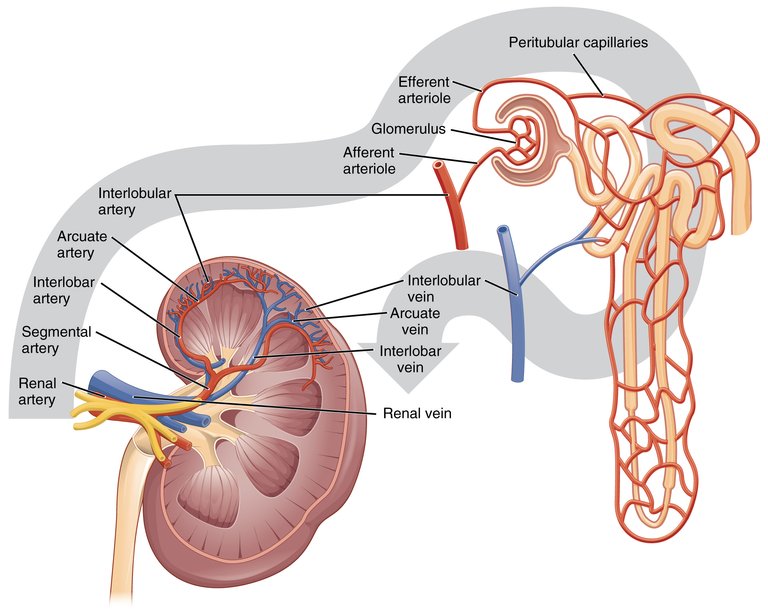What Could Happen When You are Dehydrated
I walked a long distance today about 4 miles in the scotching sun of Nigeria today. For days now, the weather has been extremely hot and I have been wondering what is going on and I have tried not to go out but today, I had to go out because I wanted to go visit a friend. The road to her house was lonely, and there was no bike to get me there so I decided to trek it out. At the end I got there and the first thing I requested for was water.
The significance of water often goes unnoticed until its absence becomes palpable. When we consume water, it rapidly permeates the bloodstream through capillaries in the small intestine, reaching every part of the body. Water is essential for hydration, temperature control, nutrient transport, and waste removal, encompassing substances like creatinine, uric acid, urea, excess vitamins, medications, and metabolites, along with excess sodium, which is eliminated through urination to prevent toxicity.
Talking about wastes, Urea is derived from protein breakdown in the body to get energy but too excess urea in the body can be problematic causing confusion, memory loss, and trouble focusing. In cases where urea buildup is extremely high, it can lead to muscle twitching, seizures and can lead to coma.
High Urea levels in cells can lead to oxidative stress which in turn increases the production of free radicals which can damage our DNA, and proteins. Oxidative stress on the other hand can lead to the stiffening of the heart muscles preventing it from pumping blood effectively which can lead to irregular heartbeat and heart failure. So to ensure this doesn't happen, the kidneys eradicate the waste but then, when there is excess urea, the kidneys can be damaged.
Uric acid come from certain foods and the body's natural processes but when in excess and doesn't go away, it can make crystals in the joints leading to gout. Uric Acids can also form crystals in the kidneys which leads to kidney stones which causes difficulty during urination, and in large sizes can affect the function of the kidneys.
When Creatine is metabolized to produce energy in the muscles, Creatinine is formed into the bloodstream. A large amount of it can lead to decreased muscle mass, or muscle loss, while in high level can lead to kidney problems. As important as vitamins are storage of vitamins in excess amount are excreted through urine. Since vitamin C is water soluble, it can be excreted via the urine but excessive amounts of vitamin C an lead to digestive upsets and diarrhea.
Certain chemicals mimic hormones in the body and the presence of this chemicals in the body can lead to developmental abnormalities, thyroid issues, and reproductive problems but when moderate amount of water is consumed, the chemicals are removed from the body but in cases where there is no enough water it can lead to this problem.
Not drinking enough water can lead to an increase in sodium as the level of sodium increases in respect to its intake and this can lead to increased blood volume causing the heart to work harder, and the blood vessels to strain itself. The average adult excretes about 3 liters of water daily through urine, sweat, breathing, bowel movements, tears, skin, and saliva.
If you urinate when you are dehydrated, you will realize that your urine is deep yellow instead of pale white. This is because when the body is dehydrated, the brain signals the release of anti-diuretic hormone which allows for the absorption of water back into the blood vessels from the kidneys and this leads to more concentrated urine.
The brain is composed majorly of water, and when there isn't enough water in the body, and the brain starts to get deprived of water, then the brain can start to shrink as it decreases in volume. While some studies show that 8 glasses of water is enough daily, the total amount of water to be taken is determined by a lot of things including temperature, and activities performed during daily.
The body uses sweat to cool down when one is performing a strenuous activity but when the body isn't dehydrated enough, this process can be impaired putting us at risk of overheating. Water also help remove lactic acids and the byproducts of protein. In pregnant women, water is very important as fetus requires water for performing lots of essential functions such as cell growth amniotic fluid production, and so on.
Water is undeniably fundamental to our overall well-being, influencing everything from waste elimination to temperature regulation. Recognizing its importance and ensuring proper hydration is essential for maintaining a healthy and functional body.
REFERENCE
https://agupubs.onlinelibrary.wiley.com/doi/full/10.1002/2014WR016869
https://www.ncbi.nlm.nih.gov/pmc/articles/PMC6315424/
https://journals.physiology.org/doi/full/10.1152/ajpregu.00365.2002
https://www.niddk.nih.gov/health-information
https://open.oregonstate.education/aandp/chapter/26-2-water-balance/
https://my.clevelandclinic.org/health/diseases/21509-uremia
https://www.ncbi.nlm.nih.gov/books/NBK441859/
https://www.ncbi.nlm.nih.gov/pmc/articles/PMC5551541/
https://www.ncbi.nlm.nih.gov/pmc/articles/PMC7007944/
https://www.urmc.rochester.edu/encyclopedia
https://www.ncbi.nlm.nih.gov/pmc/articles/PMC4170516/
https://www.ncbi.nlm.nih.gov/books/NBK538510/
https://www.niehs.nih.gov/health/topics/agents/endocrine
https://www.yourhormones.info/hormones/anti-diuretic-hormone/
https://www.ncbi.nlm.nih.gov/books/NBK526069/
https://www.ncbi.nlm.nih.gov/pmc/articles/PMC8149962/
https://www.ncbi.nlm.nih.gov/pmc/articles/PMC4672008/
https://www.marchofdimes.org/find-support/topics/pregnancy/amniotic-fluid


Thanks for your contribution to the STEMsocial community. Feel free to join us on discord to get to know the rest of us!
Please consider delegating to the @stemsocial account (85% of the curation rewards are returned).
Thanks for including @stemsocial as a beneficiary, which gives you stronger support.